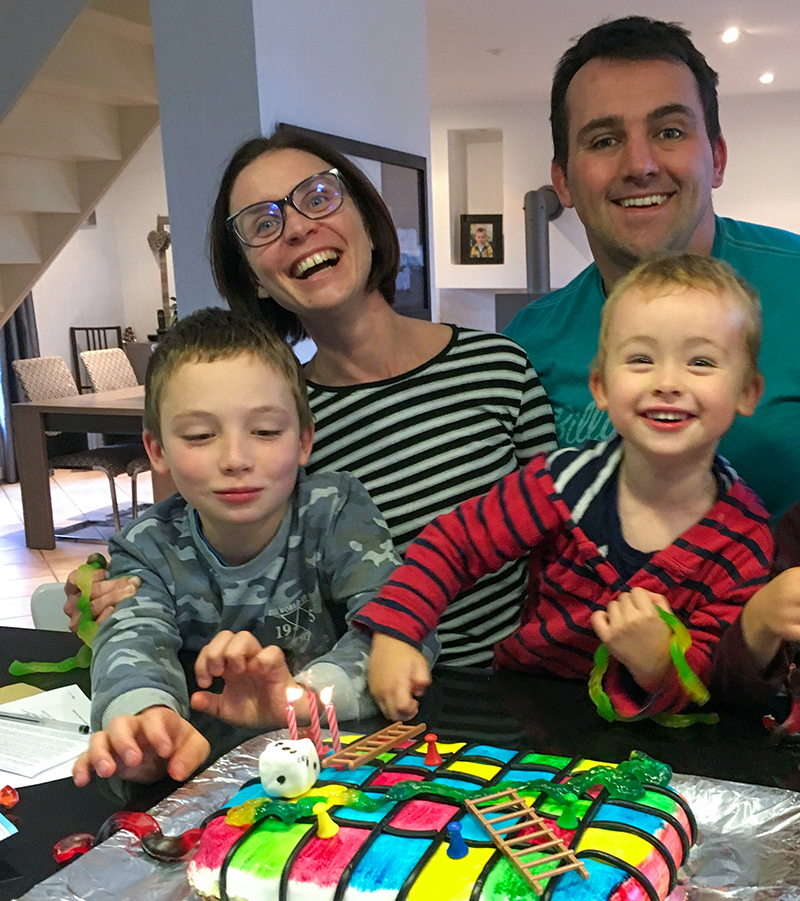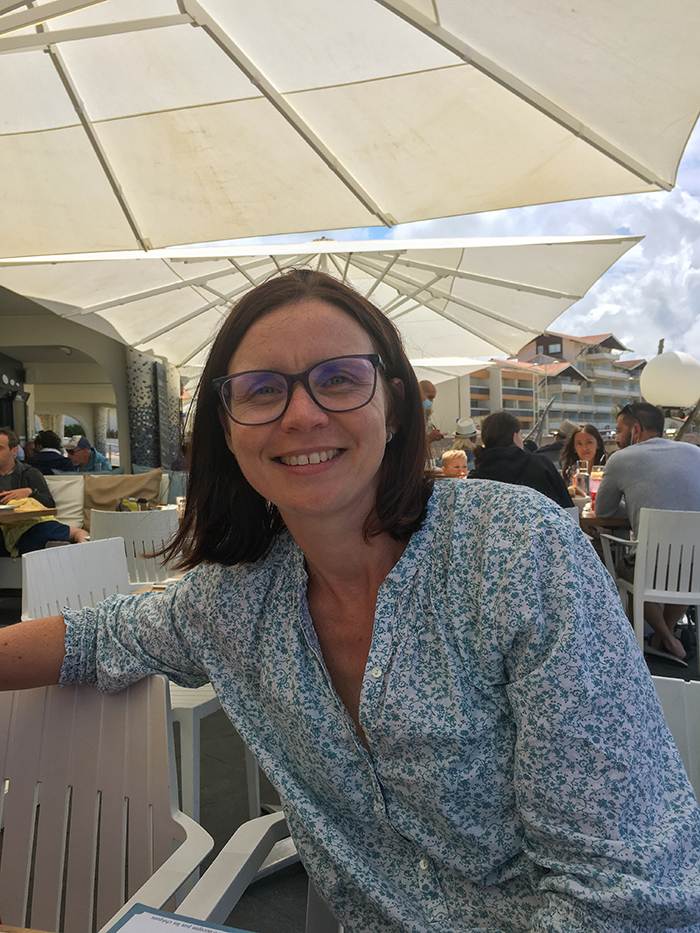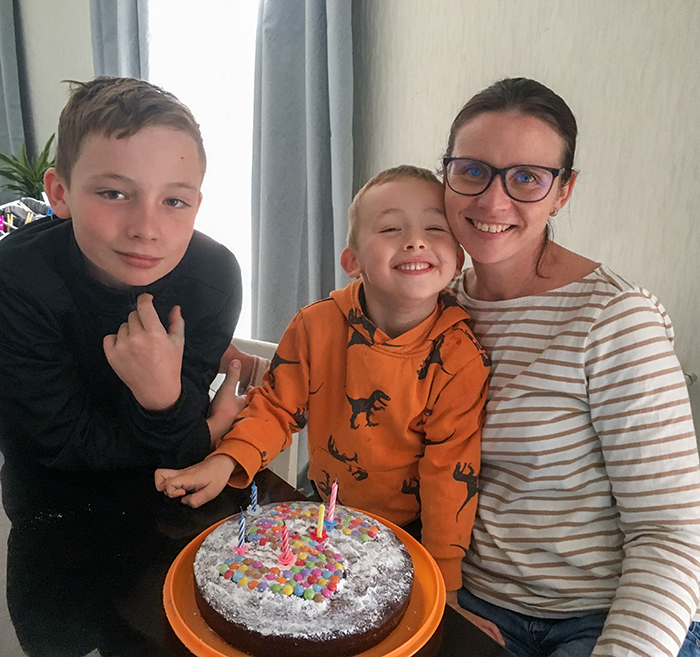When Lauren Coetzee moved from South Africa to France, she couldn’t have predicted just how international her life and career would become. Now, as a Senior Project Manager at Cepheid, Lauren oversees finance and accounting processes for distribution throughout Europe, meeting local requirements to bring life-saving medical technology directly to customers. Reflecting on her career journey to and at Cepheid, Lauren discusses how to balance careful planning with adaptability, how side projects evolve into exciting new work, and the difference that rapid diagnostics can make.

Tell us about your role at Cepheid.
As a Senior Project Manager, I work with an extended finance team on our “Go Direct” projects. We started Go Directs three years ago, so we could get our molecular diagnostics directly to customers and give them the Cepheid experience. Buying out distributors and selling directly has helped us reach a bigger market and better compete with other companies, but it’s also made a real-world impact. For example, with the COVID-19 pandemic, where prompt distribution and testing is essential. And we were able to efficiently distribute our new COVID products so people could be tested and treated in a better way.
I do everything related to finance for Go Direct: setting up financial processes, making contacts with local accounting providers within the different countries to ensure that local compliance regulations are met. I also work to translate these rules and regulations into our enterprise resource planning (ERP) system as user requirements to remain compliant with local tax and accounting rules within the various countries. This work requires working closely with the different functions of the business.
Tell us more about the Go Direct project and its impact.
Day-to-day, I do research on countries we’re going into, input their requirements into our system, and piece together a process. Then I make contact with outside accounting firms, explaining our needs and negotiating contracts. That’s how we build partners who can provide us with help and support. And I work closely with my finance colleagues—for example, one person’s really good with taxes and customs—to basically map out everything we could possibly need to know from a finance point of view. I take all the information and compile it into an Excel workbook for each country as a detailed finance plan and roadmap for the project. Then after we move into a country, for about three to six months I act as the accounting manager for the new entities, and I continue to document learnings and details, so that if I look something up, no one has to look it up again. And once things are stabilized, I bring in new accountants, hand my baby over to the accounting team, and then off they go.
It feels like I’m truly making the world a little better, because I know how important fast and accurate medical diagnostics can be. When my son was an infant, he got sick, and I remember sitting there in the waiting room, not knowing what was wrong with him, just waiting. If we can cut that anxiety down from three days to 48 or 24 hours, it makes a huge difference.

How did you come to Cepheid?
I was an auditor for many years at an international firm in my home country, South Africa. Then my husband—a professional rugby player—got a contract to play in Paris. I resigned, but my boss at the time encouraged me to apply at the company’s French branch. I didn’t speak the language, not even to say “hello.” Still, they gave me six months to attend French language school and get my visa in order, and then they hired me. Since I knew English well, I got to work with large international clients and take on big projects.
I enjoyed it, but when I had a baby, I couldn’t continue 18-hour days. I was sad about leaving my job, but I spent time with my son, and then I had another baby, and when he was about a year old I was ready to re-enter the working world. Then Cepheid contacted me through LinkedIn about an accounting position. As an auditor, accounting had always been “the other side of the fence,” and I wanted to try that type of work, so I was very interested in the accounting position.
The funny thing is we had moved to the French countryside, in the middle of nowhere, but the Cepheid office happened to be 20 minutes away. I remember driving to the interview through sunflower fields, thinking I was lost, but there it was. It just seemed like fate, how everything worked out.
How have you learned and grown at Cepheid?
After working as an accountant for three months, they offered me an accounting manager role, where I oversaw three countries and managed a team. During that time, the Go Direct project came up, and I thought it would be a great way to learn more about Cepheid and its processes. I took on Go Direct as a side project and got to meet people in different departments and really grow. When that first playbook was done, my boss approached me, asking if I’d want to do another project. I jumped on the opportunity to improve on my workbook and plans. Things really snowballed from there, as I worked on Go Direct initiatives in Spain, Portugal, Austria, and Poland. Over the past year I’ve taken on six more countries, and it’s been great to be a part of this exciting growth for the company.
I had a lot of mentors along the way, including my boss, Nicolas Brouchon. Even when I was new to the company, people in different departments kindly took the time to explain concepts and processes to me.
I also learned about Danaher Business System (DBS) and got to see its potential for project management. For example, with our first country, Spain, we didn’t have a set plan like we do now. DBS helped us organize and get everyone on the same page. Because when you bring in individuals with different ways of thinking, it’s important to focus and understand what needs to be done in terms of deadlines. Using DBS shows you how everything is interlinked, so you can see how being late affects milestones. So we knew the importance of communication and working as a unit.

What challenges do you face at your job?
The biggest challenge is that every single project is different, since no two countries are the same. Yes, the process is the same, but the local laws and requirements are not. You have to adapt and work with different people. Fortunately, I love this type of problem-solving. It makes you think outside the box, because in your back pocket, you need to have plan A, B, C, and D for different scenarios.
I’m also a bit of a control freak, and it can be hard to rely on things that I don’t really have control of. Because of language barriers, I’m reliant on local accounting providers to be “me” in that country, and speak on my behalf. So I have to make sure I find the right partners—people who you can have a good relationship with, who are professional and trustworthy.
Another challenge is the rapid pace. In the last two months, we went live in four countries. You have to adapt your approach depending on what’s happening at the time. That’s one thing I’ve learned—projects never go according to plan. Fortunately, my experience as an auditor, where you adapt to different clients, has made me flexible and good at communicating with people. It’s all part of project management, and I enjoy it. I also have the benefit of being part of a project team. We help and support each other and work together to find solutions.
What are you excited for the future of your career journey?
I’m excited about Cepheid’s growth, and I’d love to get involved in new projects. I’m especially interested in getting more exposure to DBS; it’s really affected the way I think. The way it helps you see the bigger picture and the correlation between all the different tasks and how everything is interlinked—I’ve always approached problems in this way but I didn’t know it had a name. So I’d like to learn more, maybe become a DBS Leader, and use those skills to help the business in any way possible. I could even expand to areas that are linked to finance but new for me.

Leave a Reply